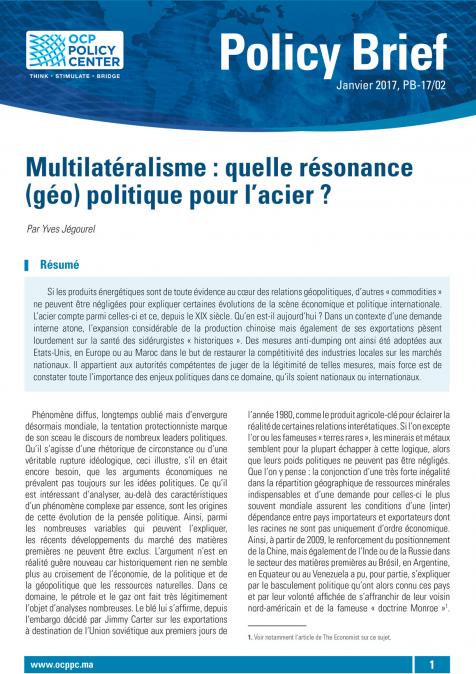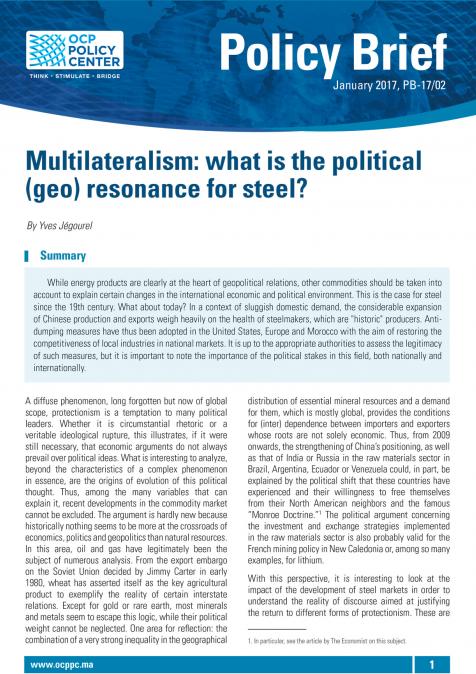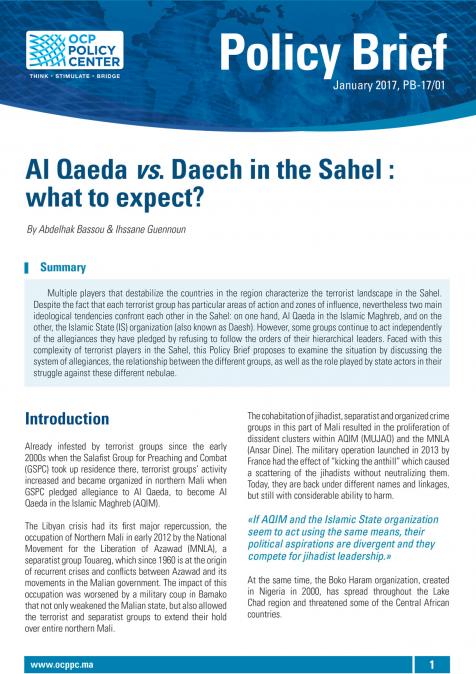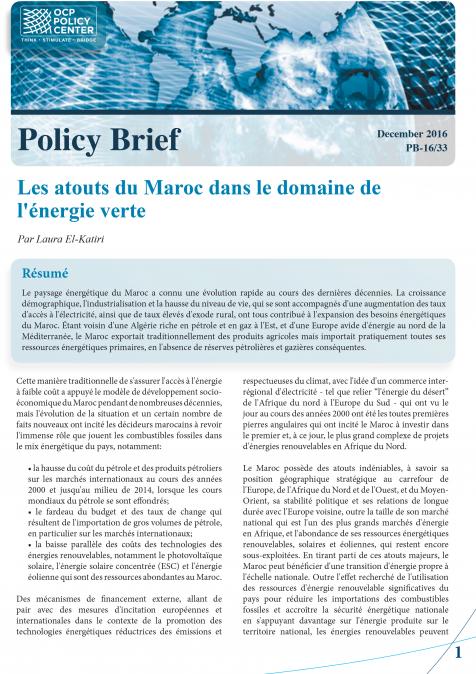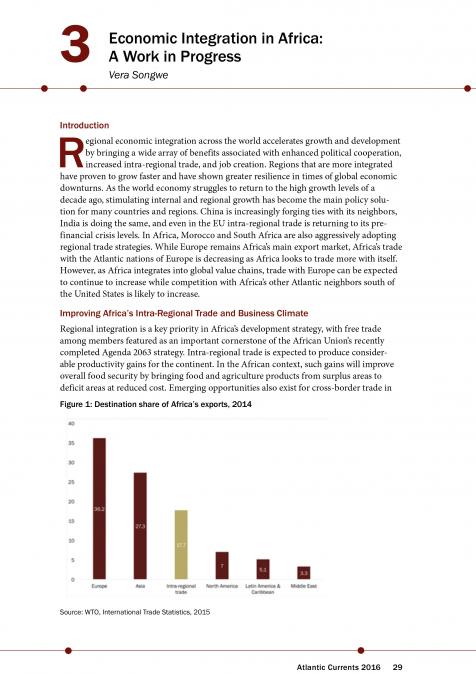In this interview, with Mr.Carlos Alexandre Monteiro Reis, Head of the Rabat Programme Office, UNOCT, Morocco, we discuss the current efforts being undertaken to counteract the radicalization of extremist movements, as well as the need for enhanced cooperation to support impoverished and less educated regions. We explore the connection between extremism and socioeconomic conditions, examining how collaboration can effectively address and mitigate these phenomena.
RELATED CONTENT
-
AuthorsJanuary 12, 2017Si les produits énergétiques sont de toute évidence au cœur des relations géopolitiques, d’autres « commodities » ne peuvent être négligées pour expliquer certaines évolutions de la scène économique et politique internationale. L’acier compte parmi celles-ci et ce, depuis le XIX siècle. Qu’en est-il aujourd’hui ? Dans un contexte d’une demande interne atone, l’expansion considérable de la production chinoise mais également de ses exportations pèsent lourdement sur la santé des sidér ...
-
AuthorsJanuary 12, 2017While energy products are clearly at the heart of geopolitical relations, other commodities should be taken into account to explain certain changes in the international economic and political environment. This is the case for steel since the 19th century. What about today? In a context of sluggish domestic demand, the considerable expansion of Chinese production and exports weigh heavily on the health of steelmakers, which are "historic" producers. Antidumping measures have thus bee ...
-
AuthorsJanuary 5, 2017Multiple players that destabilize the countries in the region characterize the terrorist landscape in the Sahel. Despite the fact that each terrorist group has particular areas of action and zones of influence, nevertheless two main ideological tendencies confront each other in the Sahel: on one hand, Al Qaeda in the Islamic Maghreb, and on the other, the Islamic State (IS) organization (also known as Daesh). However, some groups continue to act independently of the allegiances they ...
-
 AuthorsThomas Awazu Pereira da SilvaJanuary 2, 2017This year, under the patronage of His Majesty King Mohammed VI, the OCP Policy Center (OCPPC) - in collaboration with the German Marshall Fund of the United States (GMFUS) - hosted and organized the fifth Atlantic Dialogues, gathering over 300 high-level international public- and private-sector leaders from the Atlantic Basin to discuss cross-regional issues ranging from economic and social development, security and trade, to migration, resources, and energy. This year’s event, loca ...
AuthorsThomas Awazu Pereira da SilvaJanuary 2, 2017This year, under the patronage of His Majesty King Mohammed VI, the OCP Policy Center (OCPPC) - in collaboration with the German Marshall Fund of the United States (GMFUS) - hosted and organized the fifth Atlantic Dialogues, gathering over 300 high-level international public- and private-sector leaders from the Atlantic Basin to discuss cross-regional issues ranging from economic and social development, security and trade, to migration, resources, and energy. This year’s event, loca ... -
Francis PerrinDecember 30, 2016Ce podcast est présenté par M. Francis Perrin. Il traite des principaux acteurs des industries mondiales du pétrole et du gaz, explique pourquoi le secteur de l’énergie est au cœur des en ...
-
Eduardo Amaral HaddadDecember 30, 2016This podcast is presented by Pr. Eduardo Amaral Haddad. Specialist in regional economics, the professor deliver his thoughts about the relevance of developing a spatial tool in morocco, i ...
-
AuthorsLaura El KatiriDecember 30, 2016Le paysage énergétique du Maroc a connu une évolution rapide au cours des dernières décennies. La croissance démographique, l'industrialisation et la hausse du niveau de vie, qui se sont accompagnés d'une augmentation des taux d'accès à l'électricité, ainsi que de taux élevés d'exode rural, ont tous contribué à l'expansion des besoins énergétiques du Maroc. Étant voisin d'une Algérie riche en pétrole et en gaz à l'Est, et d'une Europe avide d'énergie au nord de la Méditerranée, le M ...
-
David HumphreyDecember 30, 2016This podcast is performed by Mr. David Humphrey. Mineral economics comprises a wide range of issues relating to the mineral sector. These include pure economics topics such as prices, cos ...
-
AuthorsVera SongweDecember 23, 2016Regional economic integration across the world accelerates growth and development by bringing a wide array of benefits associated with enhanced political cooperation, increased intra-regional trade, and job creation. Regions that are more integrated have proven to grow faster and have shown greater resilience in times of global economic downturns. As the world economy struggles to return to the high growth levels of a decade ago, stimulating internal and regional growth has become t ...
-
AuthorsOnasis Tharcisse A. GuedegbeDecember 23, 2016Trade integration is a prerequisite for the success of any economic integration project. The factors hindering trade integration therefore constitute a bottleneck to the economic integration project of the countries of the Economic Community of West African States (ECOWAS), which is an effective means of coping with the substantial expansion of sub-regional food demand. The aim of this paper is to highlight the factors that constrain trade flows and increase the cost of trade in the ...

